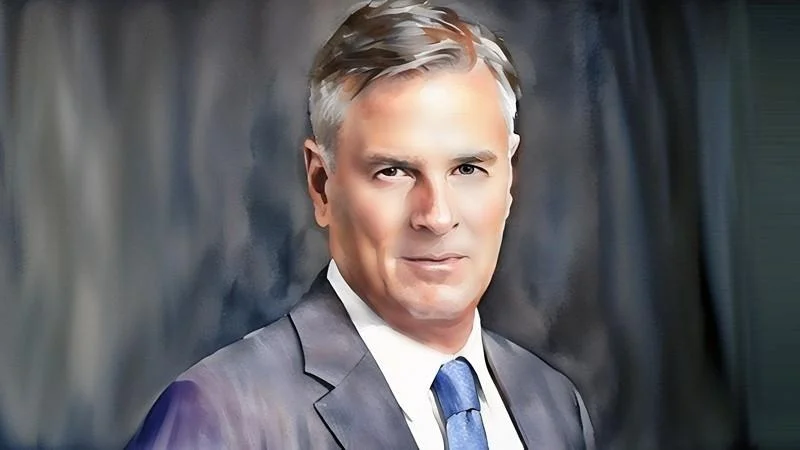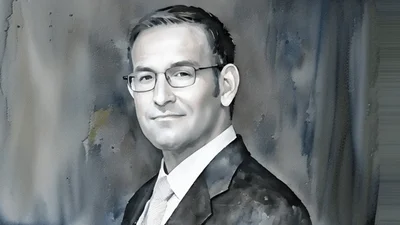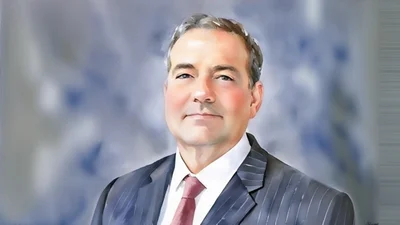Western governments reassess decades of engagement with China as supply chains shift, tariffs rise, and strategic rivalry hardens. Trade coercion against U.S. partners, pandemic fallout, and “wolf warrior” diplomacy fuel a wider debate about what comes next. Australian entrepreneur and commentator Andrew Phelan argues the old model has run its course and urges a firmer understanding of how the Chinese Communist Party wields power at home and abroad.
Andrew Phelan is an Australian med-tech entrepreneur and writer with deep China experience. He studied international affairs, served as an Australia-China Council scholar, and attended the Johns Hopkins Nanjing Center. He lived and worked across China and Asia, combined cross-cultural expertise with health technology, and spent 15 years in Singapore before returning to Australia to care for his parents. Today he appears frequently in Australian media and speaks publicly on China and global affairs.
Phelan traces China’s transformation to reforms that unleashed manufacturing and foreign investment. “The change is vast,” he says. “Life was very simple back then … hardly any cars … everyone on their bikes, and it just shows how far it changes.” He credits Deng Xiaoping’s pragmatism, saying “He is very wise … willing to risk the flies and take the opportunity … a billion Chinese people are better for that.”
Momentum, he says, shifted after the 2008 Olympics and global financial crisis. “I think it is about 2008. Chinese leadership feels confident … the ditching of ‘hide your strength, bide your time’ begins.” Xi Jinping’s arrival accelerated the turn. “Right from the get-go he is different,” Phelan says. “We see ‘wolf warrior’ behavior … diplomats given a template and told to be as obnoxious as possible … it does not win Beijing any favors.”
The old bargain of offshoring for lower costs, according to him, reached its limit. “There is a BusinessWeek cover called ‘The China Price’ … manufacturers in the Midwest getting underbid by 30%,” he says. “That works well until it does not … the hollowing out of the U.S. industrial base is a huge problem.” He argues for rebuilding capacity and ending naïveté about market access. “Beijing talks about free trade and a rules-based system … that’s rubbish,” he says. “Mandatory joint ventures, mandatory tech transfer … if they could make planes as good as Boeing, they would stop buying from Boeing.”
Strategic intent sits behind policy slogans, Phelan says. “They call it ‘Delete America.’ Made in China 2025 hits probably 80% … and they want to cut reliance on the U.S. while absorbing what they can locally.” He points to a new wave of competition. “We are in ‘China Shop 2.0’ — tech products and EVs flooding markets … manufacturers in Thailand, Indonesia, Brazil take a beating because nobody can compete with the size and scale.”
He says Australia’s experience with economic coercion hardened his view. “Australia does very well out of China’s rise. Coal and iron ore underwrite prosperity … then our prime minister asks for an independent Covid origins inquiry, and we get put in the sin bin … coal stuck offshore, bans on barley, lobsters, beef … they call them technical issues, but it is unilateral trade coercion.”
Phelan condemns the early pandemic response. “It is a cover-up,” he says. “Doctors are censored, Lunar New Year gatherings go on, people leave Wuhan and travel internationally while they scoop up PPE. Once lockdowns end, the virus rips through and God knows how many elderly die.” He contrasts that with 2003. “China in SARS is more open and pragmatic … Xi today is very anti-American and says, ‘we can do it ourselves.’”
Threats do not stop at the water’s edge, he says. “People need to understand how the united front works,” he says. “Harassment, surveillance, interference through the diaspora … we see cases in New York, we see efforts to influence elections.” Australia responded with a Huawei ban and foreign-interference laws, yet Phelan says more education is needed. “Since the iPhone era, many live in a digital ecosystem built in China … censored and controlled from China.”
According to him, civic pushback matters. “People should be able to speak their mind without corporations or universities telling them to pull their head in,” he says. “I go to veterans’ associations, rugby clubs, anywhere … the response is overwhelming. People say, ‘How come we do not know this stuff?’ If you depend on legacy media, you are not going to get it.”









